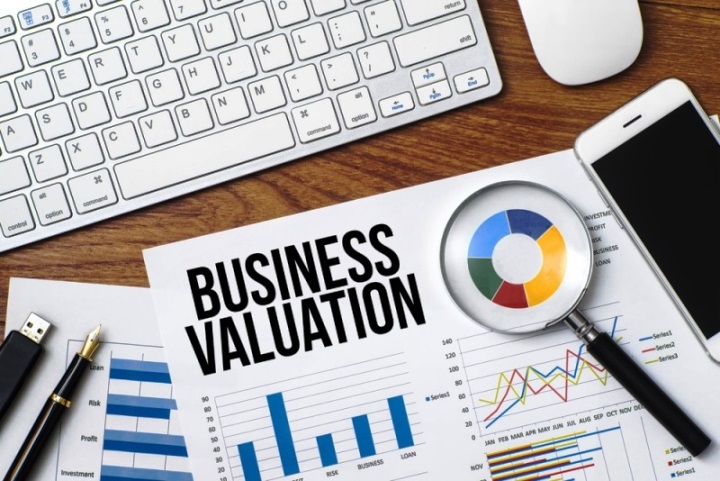-
AuthorRajat Khaneja
-
Comments0 Comments
-
Category
999 total views
Valuation of any business is very important to understand the real worth of the business. The correctness of valuation is very crucial as any deviation from the real worth of any business may result in wrong decision making and adversely impact the business. The sanctity of valuation depends on the knowledge and experience of a valuer. The valuer is supposed to provide unbiased and proper valuation report to arrive at the actual valuation of any asset/business.
Regulation of the valuation professional valuer is very important in order to promote fair practices in the market. Therefore, in order to regulate the valuation practices in India and to match the valuation practices in India with international standards, the concept of Registered Valuers was introduced under section 247 of the Companies Act, 2013.
Ministry of Corporate Affairs (MCA) issued the Companies (Registered Valuers and Valuation) Rules, 2017 on 18th October, 2017. Section 247 also came into force w.e.f. 18th October, 2017.
Qualification of a valuer and experience, process, procedure and manner are mentioned under the Companies (Registered Valuers and Valuation) Rules, 2017.
To administer and perform functions under the valuation rules, the Insolvency and Bankruptcy Board of India (IBBI) was specified as the responsible authority by MCA vide notification dated 23 October, 2017. IBBI is regulator, administer and perform the functions of Central Government in order to govern Registered Valuers. IBBI has the powers to regulate the valuation domain both under companies Act & IBC.
IBBI being the regulatory body for Insolvency and Bankruptcy Code, 2016 (IBC), has made it mandatory that the valuation required under the IBC shall be carried out by Registered Valuers only post 1st February 2019.
Qualifications and experience
An individual shall have the following qualifications and experience to be eligible for registration under rule 3:
(a) post-graduate degree or post-graduate diploma, in the specified discipline, from a University or Institute established, recognised or incorporated by law in India and at least three years of experience in the specified discipline thereafter; or
(b) a Bachelor’s degree or equivalent, in the specified discipline, from a University or Institute established, recognised or incorporated by law in India and at least five years of experience in the specified discipline thereafter; or
(c) membership of a professional institute established by an Act of Parliament enacted for the purpose of regulation of a profession with at least three years’ experience after such membership and having qualification mentioned at clause (a) or (b).
Provisions under the Companies Act, 2013 which require valuation report from a Registered Valuer
| S.No | Section | Particulars | Provision |
| 1 | 62(1)C | Valuation report for Further Issue of Shares | When a company having share capital proposes to increase its subscribed share capital by a fresh issue of shares, such shares shall be offered to: 1. Existing shareholders i.e. Rights Issue 2. Employees under a scheme of Employees’ Stock Option 3. Any other persons except those mentioned above, if authorised by a special resolution: 4. Issue of shares on a Preferential Basis In all of the above cases, the price of the shares issued must be determined by the valuation report of a Registered Valuer subject to prescribed conditions. |
| 2 | 192(2) | Valuation of Assets Involved in Arrangement of non-cash transactions involving Directors | In case of sale or purchase of any asset involving a company and the directors of the company (or its holding, subsidiary or associate company) or a person connected with the Director for consideration other than cash, the value of the assets has to be calculated by a Registered Valuer. |
| 3 | 230(2)(c)(v) | Valuation of shares, property and assets of the Company under a scheme of Corporate Debt Restructuring | In case of a compromise or arrangement between members (such as in mergers or amalgamations) or with creditors (such as in corporate debt restructuring), a valuation report in respect of shares, property or assets, tangible and intangible, movable and immovable of the company, or a swap ratio report by a Registered Valuer is required. |
| 4 | 230(3) | Valuation report along with Notice of creditors/shareholders meeting – Under a scheme of compromise / Arrangement | In case of a compromise or arrangement between members (such as in mergers or amalgamations) or with creditors, a valuation report in respect of shares, property or assets, tangible and intangible, movable and immovable of the company, or a swap ratio report by a Registered Valuer is required. |
| 5 | 232(2)(d) | The report of the expert with regard to valuation, if any, would be circulated for the meeting of creditors/Members | Same as above |
| 6 | 232(3)(h) | The Valuation report to be made by the tribunal for exit opportunity to the shareholders of transferor Company – Under the scheme of Compromise/Arrangement in case the Transferor company is Listed Company and the Transferee-company is an unlisted Company | Same as above |
| 7 | 236(2) | Valuation of equity shares held by the Minority Share Holders | In case an acquirer or person acting in concert with the acquirer acquire 90% or more of the equity capital in a company, they can offer to the minority shareholder (or the minority shareholder can offer to the acquirer) to acquire the minority shareholding at a valuation determined by the Registered Valuer. |
| 8 | 260(2)(c) | Powers and duties of Company Administrator | A company administrator appointed by the Tribunal under section 258 of the Act to prepare a scheme of revival and rehabilitation of a sick company, shall perform such functions as may be directed by the Tribunal u/s 260. He/she may also cause to be prepared, inter alia, a valuation report in respect of the shares and assets in order to arrive at the reserve price for the sale of any industrial undertaking of the company or for the fixation of the lease rent or share exchange ratio. |
| 9 | 281(1) | Valuing assets for submission of report by a liquidator | Valuation of assets of the company prepared by the Registered Valuer is required in case of winding up, voluntarily or otherwise. |
| 10 | 305(2)(d) | Declaration of insolvency in case of proposal to wind up voluntarily | Where a proposal for voluntary winding up has been made by a company, a declaration must be made by the board of directors that the Company has no debt or whether it will be able to pay its debt in full from the proceeds of assets sold in voluntary winding up. The declaration made must be accompanied by, among other things, a valuation report prepared by Registered Valuer of the assets of the company. |
| 11 | 319(3)(b) | Power of Company Liquidator to accept shares etc, as consideration for the sale of property of the Company | Any member of the transferor company who did not vote in favour of the special resolution and expresses his dissent therefrom in writing addressed to the Company Liquidator, and left at the registered office of the company within seven days after the passing of the resolution, may require the liquidator to purchase his interest at a price to be determined by agreement or the registered valuer. |
| 12 | Rule 2 of Companies (Acceptance of deposit) Rules, 2014 | Exclusions from Deposits | As per the rule, deposit includes any receipt by way of deposit or loan or in any other form by a company but does not include, among other things, money raised by the issue of debentures secured by a charge on company’s assets. The number of such debentures shall not exceed the market value of the assets as determined by a registered valuer. |
| 13 | Rule 8 of Companies (Share capital and Debentures) Rules, 2014 | Issue of Sweat Equity Shares | This rule applies to all companies except listed companies issuing sweat equity shares to its directors or employees. The rule prescribes that the sweat equity shares shall be issued at a price determined by a registered valuer as the fair price giving justification for such valuation. Also, the value of the intellectual property or know-how or any other value additions, for which the sweat equity shares have been issued to its directors or employees shall be determined by a valuation report of a registered valuer. If the sweat equity shares are issued for non-cash consideration, the value of such non-cash consideration shall be based on a valuation report by a registered valuer. Additionally, if the sweat equity shares are issued pursuant to the acquisition of an asset, the value of such asset shall also be determined based on a valuation report by a registered valuer. |
For more information, feel free to contact us.
Knowledge Partner: Mr.tax | W: www.mrtax.in
Leave A Comment Cancel reply
Recent Comments
- Why registration of a Private Limited Company is not a good idea? : Knovalt on One Person Company (OPC)
- Why registration of a Private Limited Company is not a good idea? : Knovalt on Registration of a Private Limited Company In India
- Rajat Khaneja on Essentials of a valid letterhead
- Udyog Aadhaar Registration Fees on Micro, Small & Medium Enterprise (“MSME”) Registration
- Sonal on Casual Vacancy in the office of Auditor(s) (Non-Govt company)


